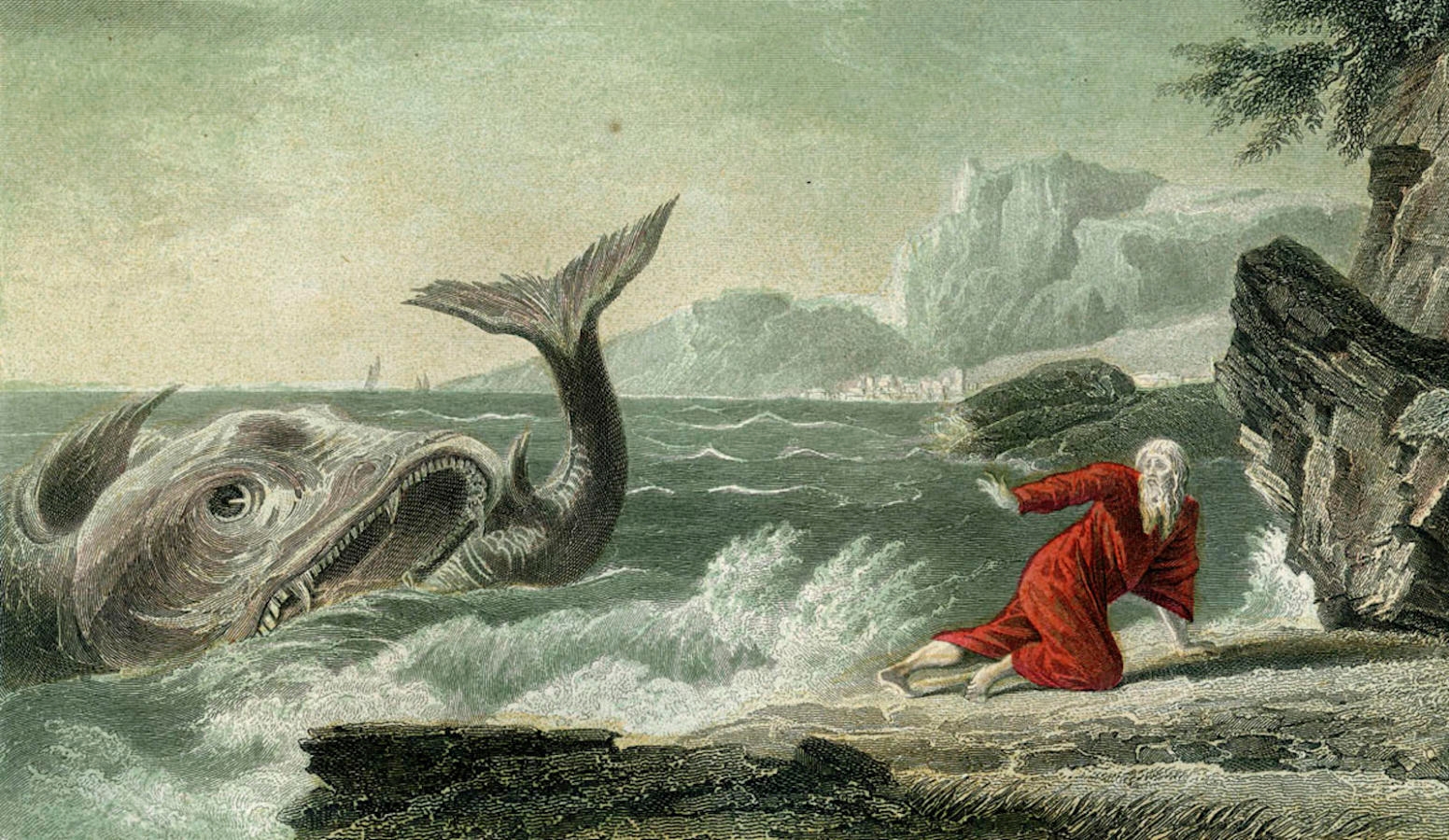Each year we read the story of Jonah during the afternoon service of Yom Kippur. At first glance, the narrative seems to remind us of the power and redemptive value of teshuvah, the Hebrew word for repentance. But the true meaning of the story is really about Jonah himself.
Jonah was an unlikely prophet. He simply wants to go about his life free from duty and responsibility. Then God calls and gives him a relatively simple task: Go to the city of Nineveh and warn the people they will be destroyed in three days because of their wicked behavior. But Jonah can’t face up to the job. Instead, he makes his way to the local port, boards a ship, and runs away.
Of course, you can’t outrun God. The boat is tossed around in a violent storm and Jonah is thrown overboard after he admits that he is the cause of the tempest. He is then swallowed by a fish and lives inside its belly for three days. Jonah cries out to God and is spit out of the fish so he can make his way to Nineveh to fulfill his assignment.
Jonah then warns the people of Nineveh that God plans to destroy them unless they repent. While we might expect them to laugh in Jonah’s face, instead they take him seriously. The king of Nineveh descends his throne and declares a three day fast, decreeing that no human or beast will taste food or drink water. God observes the Ninevites’ acts of contrition and spares the city.
With your help, My Jewish Learning can provide endless opportunities for learning, connection and discovery.
This seems to be an example for us all. If even the wicked, non-Hebrew citizens of Nineveh could see the power of God and the consequences of a life of evil, how much more so should we repent and follow God’s commandments?
While that’s certainly a powerful message, it’s actually peripheral to the true moral of the story. In modern fictional parlance, the possible destruction of Nineveh is nothing more than a MacGuffin, a plot device necessary to the story but which is in fact irrelevant itself. The true lesson of the book revolves around Jonah himself.
Jonah is irresponsible and immature, the polar opposite of every other character in the book.
The shipmates that Jonah encounters while he attempts to flee all act with compassion and reverence, resisting the impulse to throw Jonah overboard simply to save themselves. It’s only after Jonah insists that they reluctantly do so. When the sea then becomes calm, they respect the power of God by taking vows and offering sacrifices.
Later, the people of Nineveh defy all expectations and respond in a similar fashion. Every single character in this story—even the whale which follows God’s instructions to swallow and then spit Jonah out—is presented in a positive light. Except, that is, for Jonah himself.
Even after God spares the city of Nineveh, he remains unchanged. The text tells us that after delivering God’s dire warning, Jonah climbed a hill outside the city to see what would happen. We infer that he was actually disappointed that there was no fire and brimstone. See, he whines to God, I knew that this was a total waste of my time. You weren’t really going to go through with it.
God then delivers the real moral punchline of the story with a small demonstration. He first provides and then takes away a shady plant which gives Jonah shelter from the blazing sun. Predictably, Jonah only thinks of his own needs and begs God for death because he is in such discomfort. God uses this as a teachable moment: If Jonah cared so much for an insignificant plant, why shouldn’t God care for a huge city of thousands of people?
Yom Kippur is a time when we reevaluate our choices and pledge to strengthen our connection to others. The real message of Jonah isn’t that we can convince God we’re good people by fasting and praying. Rather, it’s our acceptance of responsibility and caring for others that will improve our lives and the lives of those around us.
Unlike everyone else in the story, Jonah only cared about himself. He never matured or developed as a person. We, on the other hand, are capable of positive change and real empathy each day—a message that we try to emphasize on Yom Kippur.
The tagline for the Book of Jonah could well have been written by the talmudic sage Hillel: If I am not for myself, who will be for me? But if I am only for myself, who am I? And if not now, when?



